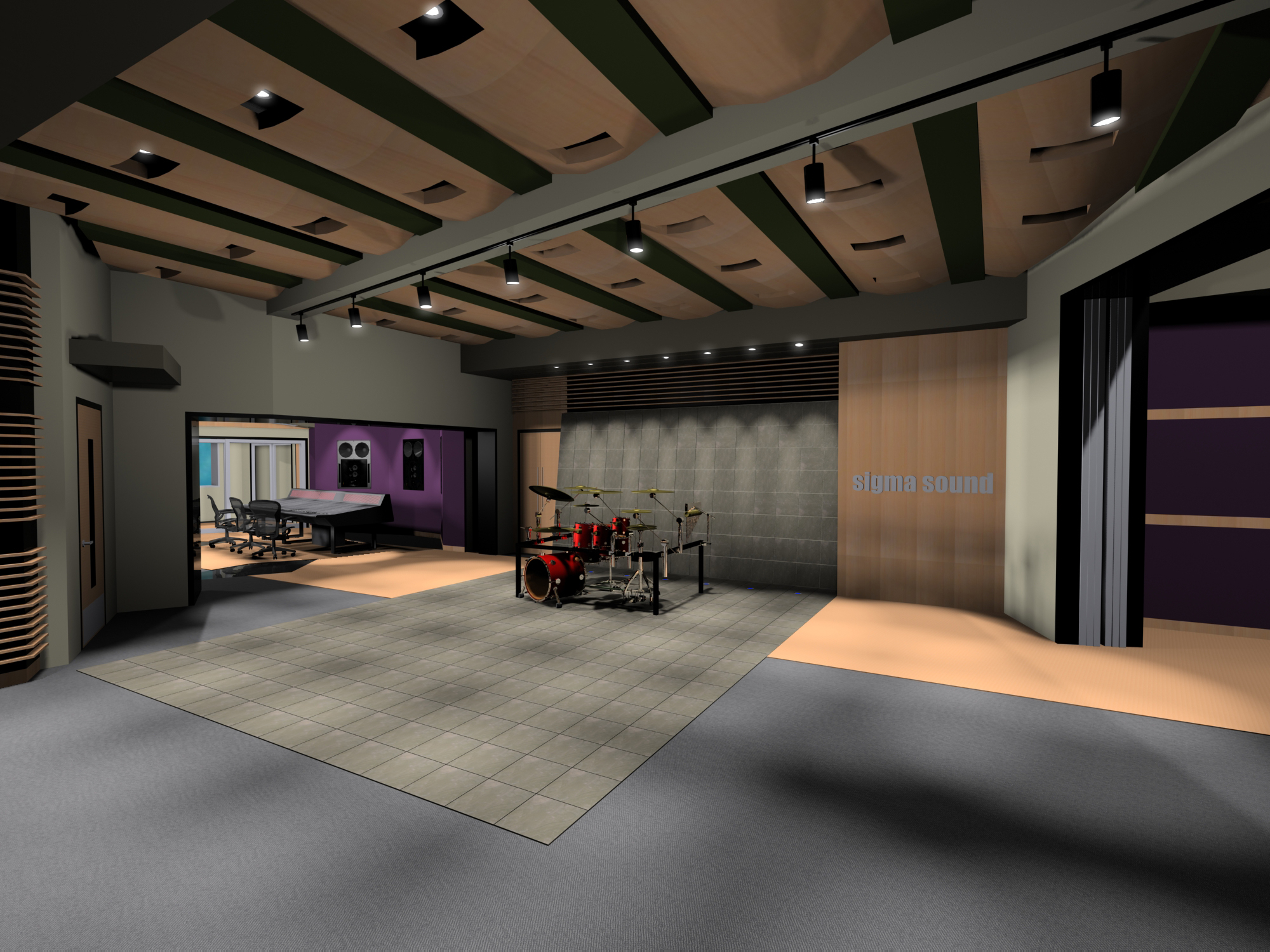


Panel participants include Andrew “Pop” Wansel, BMI’s Producer of the Year GRAMMY®-nominated producer, Warren “Oak” Felder The Phatboiz, producers of GRAMMY-nominated tracks Kenny Gamble and Leon Huff, both Rock and Roll Hall of Famers and GRAMMY-winning songwriters and James Mtume, GRAMMY-winning songwriter, musician and producer. There will be two panel discussions: Generation Next Panel, moderated by DJ Damage of Hot 107.9, and Legends Songwriting Panel, moderated by Dyana Williams, on air-personality for Old School 100.3 Radio One Philadelphia.
Sigma sound studio philadelphia series#
Tickets are $15 for general admission and are available for advanced purchase on the Old School 100.3 website.Ĭoinciding with Black Music Month, this panel series includes some of the industry’s most talented and accomplished music creators who began their careers in Philly. Special appearances include BMI Board Member and Radio One Chairperson and Founder, Cathy Hughes BMI Vice President, Writer/Publisher Relations, Atlanta, Catherine Brewton and Recording Academy Philadelphia Chapter President, Ivan Barias. The panel series takes place on Saturday, June 8, 2013, from 1:30 – 6:30 p.m. In collaboration with Radio One Philadelphia, The Recording Academy® Philadelphia Chapter and Phill圓60, BMI is providing an opportunity for aspiring songwriters and composers and those who are interested in learning about the craft of songwriting from legendary songwriters and today’s hitmakers. 12th Street.NEW YORK – J– Broadcast Music, Inc.® (BMI)® is bringing its well-known “How I Wrote That Song®” panel series to the renowned Sigma Sound studio within the music mecca of Philadelphia. The historic site marker was placed at 212 N. On October 15, 2015, the original building for Sigma Sound Studios was officially dedicated as a historic site by the City of Philadelphia. When checked on April 9, 2015, the Sigma Sound Studios website, was still available for viewing, but shows no current information on the studio's status and seems to have been last updated in 2013.
Sigma sound studio philadelphia pro#
It was reported in the April 2015 issue of Pro Sound News, (a NewBay Media publication), that "the building that houses the historic Sigma Sound Studios in Philadelphia has been sold for $1.55 million, with the intention of renovating the space for office, retail or residential use." The studios had closed for business in 2014, according to the website. Much of Sigma Sound Studios history can be found in the Temple University Library Archives. The 6,000 unclaimed tapes from Sigma's 35-year-old tape library are now part of The Drexel University Audio Archive. Tarsia sold the New York studios in 1988 and the Philadelphia location in 2003, but they still retained the Sigma Sound Studios name. The recording of " Captain Jack" from this event received extensive radio play in the Philadelphia area, long before Joel became widely known, which helped him establish a national following. On April 15, 1972, singer-songwriter and pianist Billy Joel and his touring band played an hour-long concert at Sigma Studios. Madonna used the New York studios to record her 1983 debut album, Madonna. Sigma is credited with well over 200 gold and platinum awards with an extensive client list that begins with Aretha Franklin and ends with ZZ Top.ĭavid Bowie recorded much of his album Young Americans in August 1974 at Sigma Philadelphia. Sigma's long-time general manager, Harry Chipetz, managed the business operations and worked hand-in-hand with Tarsia in developing a staff that numbered close to 50 at its peak. By the late 1970s, Sigma was operating 10 music rooms on a 24-7 schedule. Their success attracted many artistes and producers from various music genres across the US, as well as Europe and Japan. Both featured large productions with strings and horns creating what became known as the "Philadelphia Sound". Tarsia, formerly chief engineer at Philadelphia's Cameo-Parkway Studios, also opened Sigma Sound Studios of New York City in 1977, at the Ed Sullivan Theater building.įrom its beginning, Sigma Sound was strongly associated with Philadelphia soul and, in the 1970s, the sound of Gamble and Huff's Philadelphia International Records (its driving rhythm a precursor to disco music), as well as the classic, sophisticated productions of Thom Bell.


Located at 212 North 12th Street in Philadelphia, Pennsylvania, it was one of the first studios in the United States to offer 24-track recording and the first anywhere to successfully employ console automation. It was founded in 1968 by recording engineer Joseph Tarsia. Sigma Sound Studios was a recording studio in Philadelphia, Pennsylvania.


 0 kommentar(er)
0 kommentar(er)
